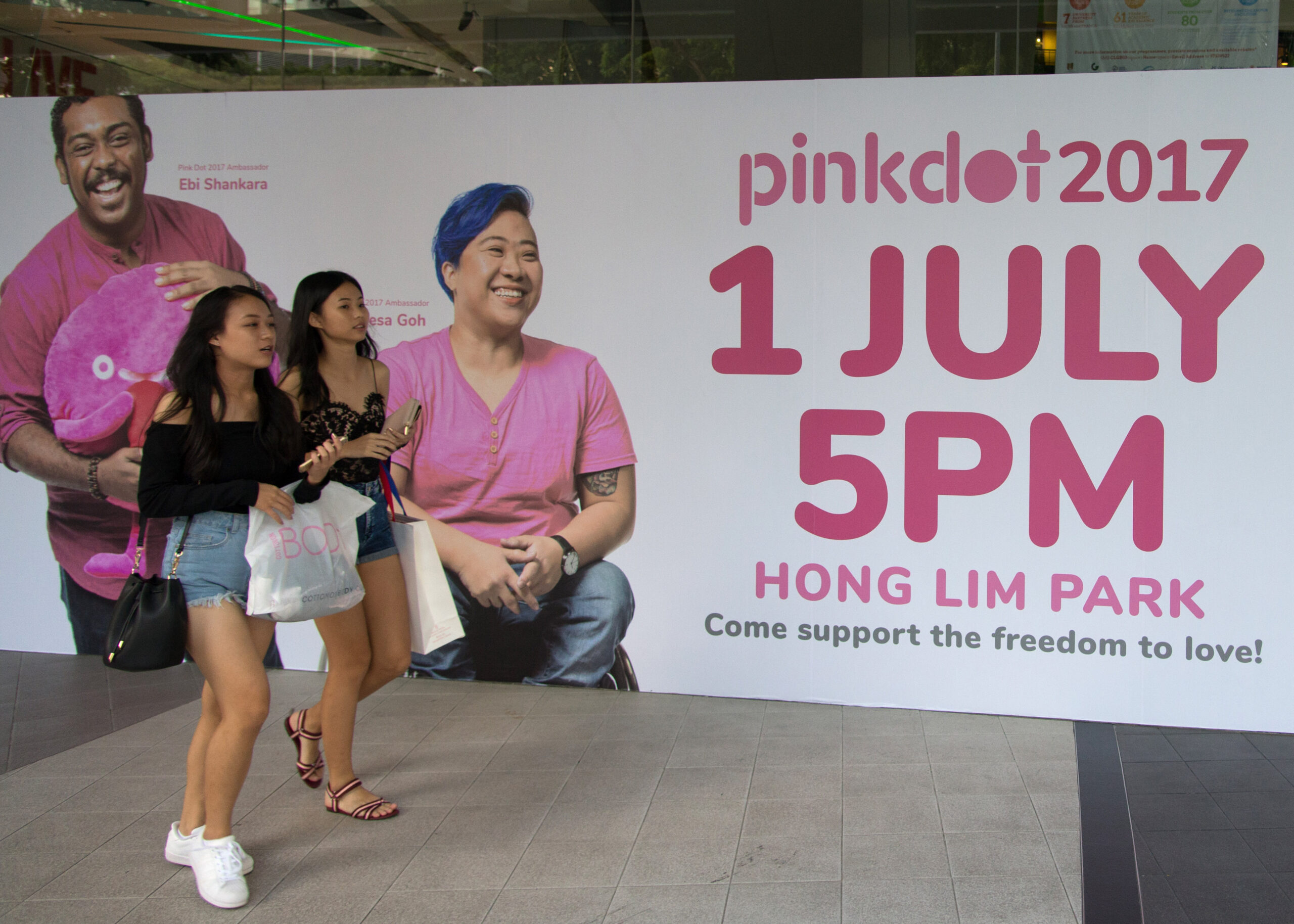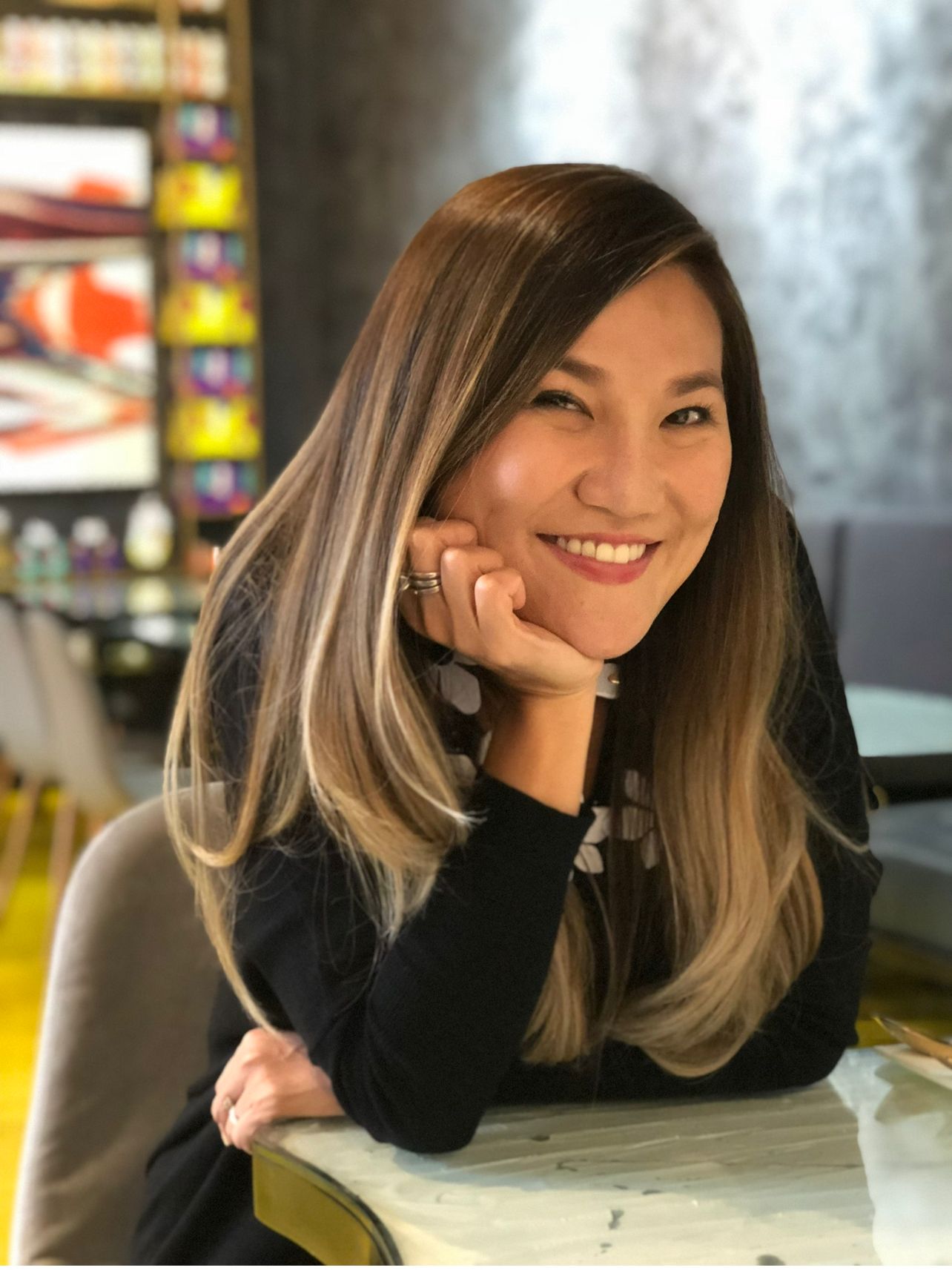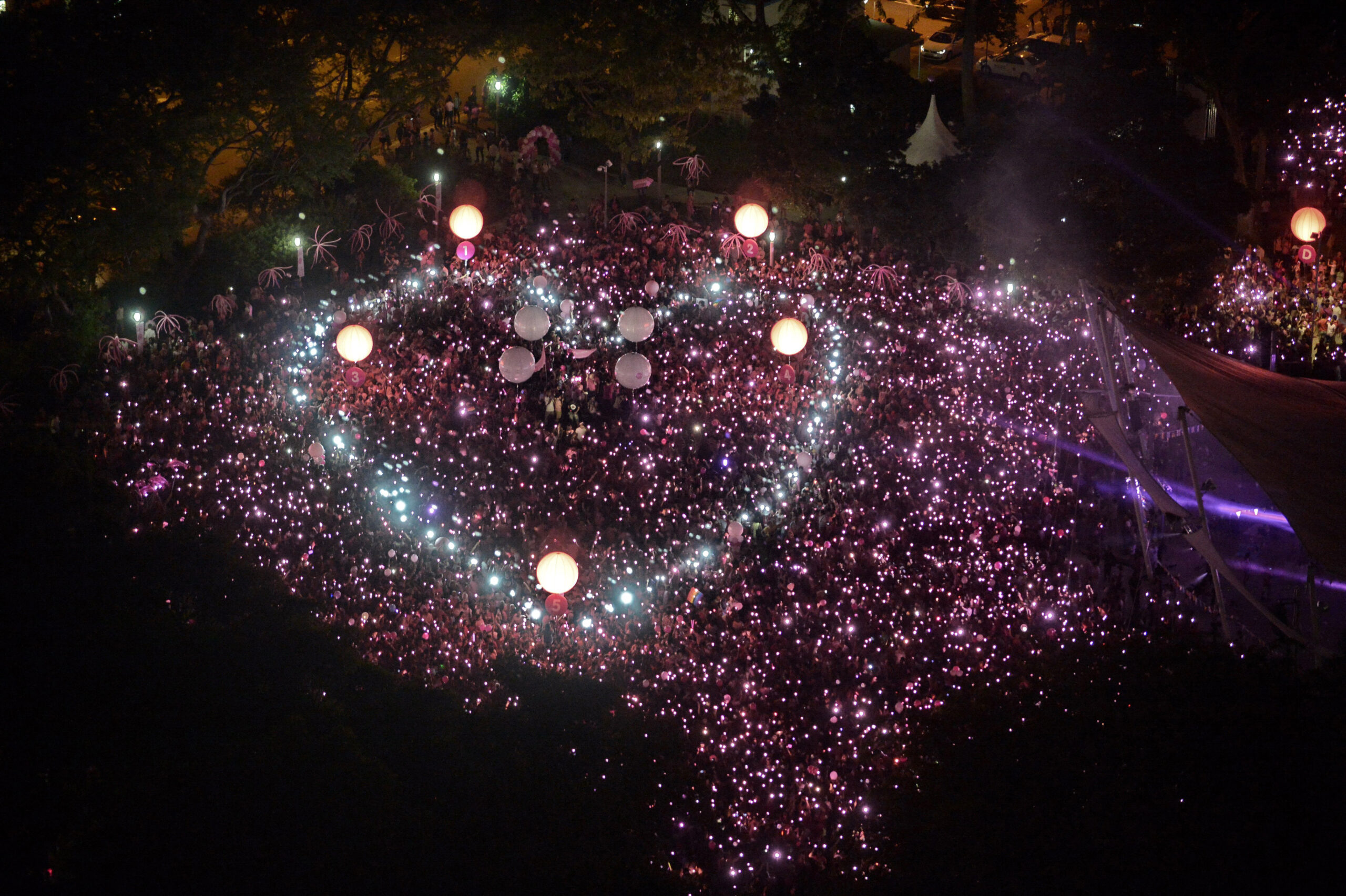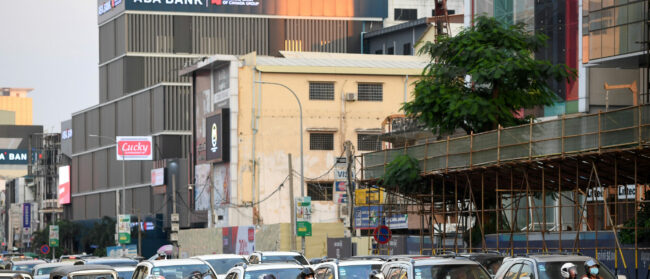The nuclear family is at the core of Singapore’s nation-building drive. In a March speech, the city-state’s minister for home affairs and minister for law, K Shanmugam, reinforced the “importance of families as the basic, essential building blocks of society.”
The government still holds the family image as one of a heteronormative couple and the ‘2.4 children’ of traditional cliché. Shanmugam’s speech stressed the importance of a straight marriage as “the fundamental building block” of the community.
Amidst falling fertility rates, efforts have also been made to boost the family unit. In a ground-breaking shift in March, Singapore lifted a ban on single women freezing their eggs for non-medical reasons. The eggs can be fertilised once the woman is legally married.
But while progress is being made for some communities, others are left behind. Those who do not fit the conventional concept of family face discrimination and bureaucratic hurdles stifling their hopes of parenthood.
New laws passed on May 9 signalled a backwards step for the homosexual community. Adoption is now only available to couples whose marriage is recognised under Singapore law, a system which only deems heterosexual couplings valid.
Same-sex activity in Singapore is a crime under the “gross indecency” 2008 Penal Code, an updated relic from British colonial times and the English criminal law that was imposed upon the city-state. Men breaching the ban could be hit with a maximum penalty of two years’ imprisonment. While there has been no evidence of enforcement since 2010 and the Singaporean authorities issued a public moratorium in February on the arrest of gay men engaging in consensual sexual activity, the government has stopped short of abolishing the law altogether.
For many in the LGBTQ+ community, it was a step in the right direction, but at a pace too slow on a journey to progress already too long.

For those who want children, matters are further complicated. Families with same-sex parents are statistically invisible. The national census does not collect data on gender identity or sexual orientation, making them officially non-existent in Singapore, overlooked in state policies including rights to social housing. And yet they are prolific in the laws and statistics highlighting the hurdles blocking homosexual parents from parenthood.
The government’s Ministry of Social and Family development in 2019 stated: “The prevailing social norm in our society is still that of a man and woman marrying, and having and bringing up children within a stable family unit. This is also the family structure that the Government encourages.”
Unsupported by a government that publicly discourages assisted reproductive technologies and surrogacy, many homosexual couples considering these options are forced to turn overseas. But rainbow families remain a target for discrimination.
A 2018 breakthrough victory for progress in 2018, when a homosexual man was allowed to adopt his biological daughter whom he fathered through surrogacy in the United States, was followed by a setback in February when courts refused to allow his partner joint custody, care and control of their children.
Decisions set at the top trickle down into public sentiment.
In a February 2021 study entitled “Our Singaporean Values,” the Institute of Policy Studies revealed only a quarter of Singaporeans agreed that homosexual parents were just as good as other couples. In response to a High Court decision, 66% of poll respondents said they supported tighter adoption laws.
In an interview with Dr. Loretta Chen, one couple shared their first-hand account of parenthood and how they and their daughters grapple with state-set and personal definitions of what it means to be a parent and what it means to be Singaporean.

The discussion, reproduced in part below, is featured in M/OTHER, a forthcoming book by Chen in which the Singaporean director, author and entrepreneur shares narratives she collected from marginalised voices across the Lion City on the diverse, overlooked and unexpected roles and meanings of parenting.
“[I wanted to] pay tribute to the often unseen, unheard stories of non-heteronormative or traditional “mothers,”” said Chen. “[The book is for anyone who wants to understand what it is like to raise a family, against all odds, in contemporary Singapore.”
Editor’s Note: This excerpt has been edited for brevity and clarity.
Maximillian: My husband innately desired children whereas I had initially baulked at the idea of parenthood. We gave ourselves time to consider the idea and I eventually came around.
Most of our friends and loved ones were very supportive. However, we did face scrutiny from a few of our well-meaning friends who questioned our intentions and asked if we were being selfish in our decision to bring children into this world given that we were gay.
I recall, in particular, a conversation with my university pal… she was incredulous when I shared with her my intention to be a parent. She reminded me that my children may have a hard time in school with “two dads” and that children could be merciless… and may bully my kids.
I remembered feeling so indignant and thinking, “Why do I need to justify myself? Am I any less of a parent just because I am gay? Am I not allowed to have children because I am an ‘other’ – so I can’t be qualified to be a parent if I was poor, a migrant, a paraplegic or ill? Why can’t I have children just because I want to?” There was so much internalisation, anxiety and overcompensating which heteronormative couples do not need to do.
My husband and I are comfortable with our gay identity and came out long ago to our families, but we felt as though our decision to become parents was being questioned and that we had to justify ourselves to the community.
We had to cross numerous mental, psychological and cultural hurdles. My mum is Muslim and my husband’s father is a traditional Chinese man. The talking, justifying and reassuring others was more exhausting than the actual surrogacy process. If you meet a straight couple who is expecting, most people will just say “congratulations,” whereas my husband and I had to answer all these questions!
In our case, we faced the added obstacle of not only dealing with societal disapproval but also existing policy regarding surrogacy or as they call it here A.R.T. (Assisted Reproductive Technology), which is permitted only for reproductively-challenged married couples within a context of a heteronormative family structure.
Effectively, there was really no other way for us than to pursue this overseas in countries like the UK or US where surrogacy and the laws governing it are more accepted and established.
How did you navigate around the citizenship system?
Maximillian: We never hoped for citizenship because we knew that was going to be an uphill battle. In the case of a child born out of wedlock in Singapore, citizenship is automatically conferred through the mother, not the father. So right from the beginning, we knew this was out of the question.
The next best option was the Long Term Visitor Passes (LTVP) for our daughters. The LTVP would allow them to stay in Singapore for longer periods, from a year to up to five years, depending on the Immigration and Customs Authority.
By the time we came back to Singapore in early 2017, we started hearing cases where the LTVP applications by gay dads were outrightly rejected.
We found out as much as we could about the application process and sought advice from lawyers, friends and friends of friends who had gone through the process before. In the end, we decided to let the application lapse. We didn’t want to risk the possibility of being confronted and I wasn’t going to lie.
So your daughters are technically tourists?
Maximillian: Yes, we’ve since just kept renewing the girls’ Social Visit Passes which only allows them to stay a maximum of 90 days in Singapore each time. It has been over four years now. This country is the only home our kids have ever known and yet we still have to keep our fingers crossed each time we go through immigration after a “visa” run.
Each time we travel, we bring my mum and Indonesian helpers along to help take care of the kids and to maintain the appearance of a regular heteronormative family instead of attracting suspicion if it was just two men with two little girls.
We did explore other possibilities. There was even a suggestion that each of us could get “married” to a Singaporean woman, file for adoption of our respective biological daughter and then “divorce” later when everything has been settled.
Another idea was for Dwayne’s brother, who is married and has a “regular” family of his own, to adopt our kids. They would get Singaporean citizenship and we would not have anything to worry about because it’s all in the family anyway.
But, you know, however expedient it may be, I couldn’t. I just could not bring myself to consider it. It just felt wrong. We did not go through all this hassle, swim against the currents with all our might just to be who we are, only to cave and take shortcuts at this point.
In the end, as a parent, it just didn’t feel right. These are my children. Yes, it’s an unjust system, shame on them, but if I was going to do all this hoop jumping to eventually cave and fold, then shame on me. This was the line I drew in the sand.
So, we’re down to our last option, which is to apply for student passes for the girls to attend pre-school. This functions like a LTVP as long as they are enrolled in school. In the case of the American and British schools here, it can take them right up to high school.
Has Covid-19 changed things?
Yes, due to the pandemic, we applied for and, within 24 hours, received our social visit pass extension approved with no questions asked. We used to have to extend every 30 days, but we are given 60 days now. This is the longest time we have all been in Singapore without having to leave and come back.
For now, the student pass is our best route as we are not asking for long-term residency. For as long as they have the student pass, they can stay in Singapore without rocking the status quo.
Do you both take on paternal roles, or does one parent feel the need to take on a more maternal role? Or are these heteronormative tropes not even necessary and applicable?
Dwayne: I don’t think we set out to take on any particular role. It has never occurred to us that we need to have a “feminine” or “masculine” role as both of us have to be caregivers and play pals. Both of us have to console them and be disciplinarians – so I will say it is less about gender role-playing than it is context-driven and playing to our strengths – i.e. who is better at this particular task at hand.
What challenges and fears did face once the children were brought back to Singapore?
Maximillian: There is always that fear that a well-meaning neighbour or makchik (Singaporean slang for ‘Aunty’) will call the Ministry of Community Development, Youth and Sports and say, “I cannot in good faith allow these two children to grow up and be raised in this immoral household.” You know, the road to hell is paved with good intentions. The last thing we want is to have a welfare officer show up at our doorstep and take our daughters away from us.
To be honest, the likelihood of them taking away our children is very unlikely unless there is a complaint. But I do have a nagging fear that a well-meaning Christian or Muslim parent will tip off a Focus on the Family type organisations who may come to our house to see whether we are fit to be parents.
The fact is, we are living in a country where people can take away our children simply because we’re gay and it is criminal to be gay. But since we want to raise a family in Singapore, this is and remains the biggest fear we have to face.
And it is something you still face…
Maximillian: Yes! Which is why I still don’t post photos of my children on Facebook. We are not ashamed, but we do not wish to invite undue attention and public scrutiny. I wish to avoid the gossipy neighbors or the well-meaning Christian or Muslim parent dispensing sage advice.
I’m involved in advocacy in Singapore with Pink Dot and am a vocal LGBTQIA advocate, but we both decided that we will leave our children out of our activism as they aren’t brought into this world to be poster children or part of a crusade for equality. We wanted them. We really wanted children.

Dr Loretta Chen is a bestselling author, award winning director and co-founder of leading metaverse architecture firm, Smobler Studios. She has been included in the Mission Impact’s ‘Women of the Future’ list for female changemakers in the metaverse and Web3.


